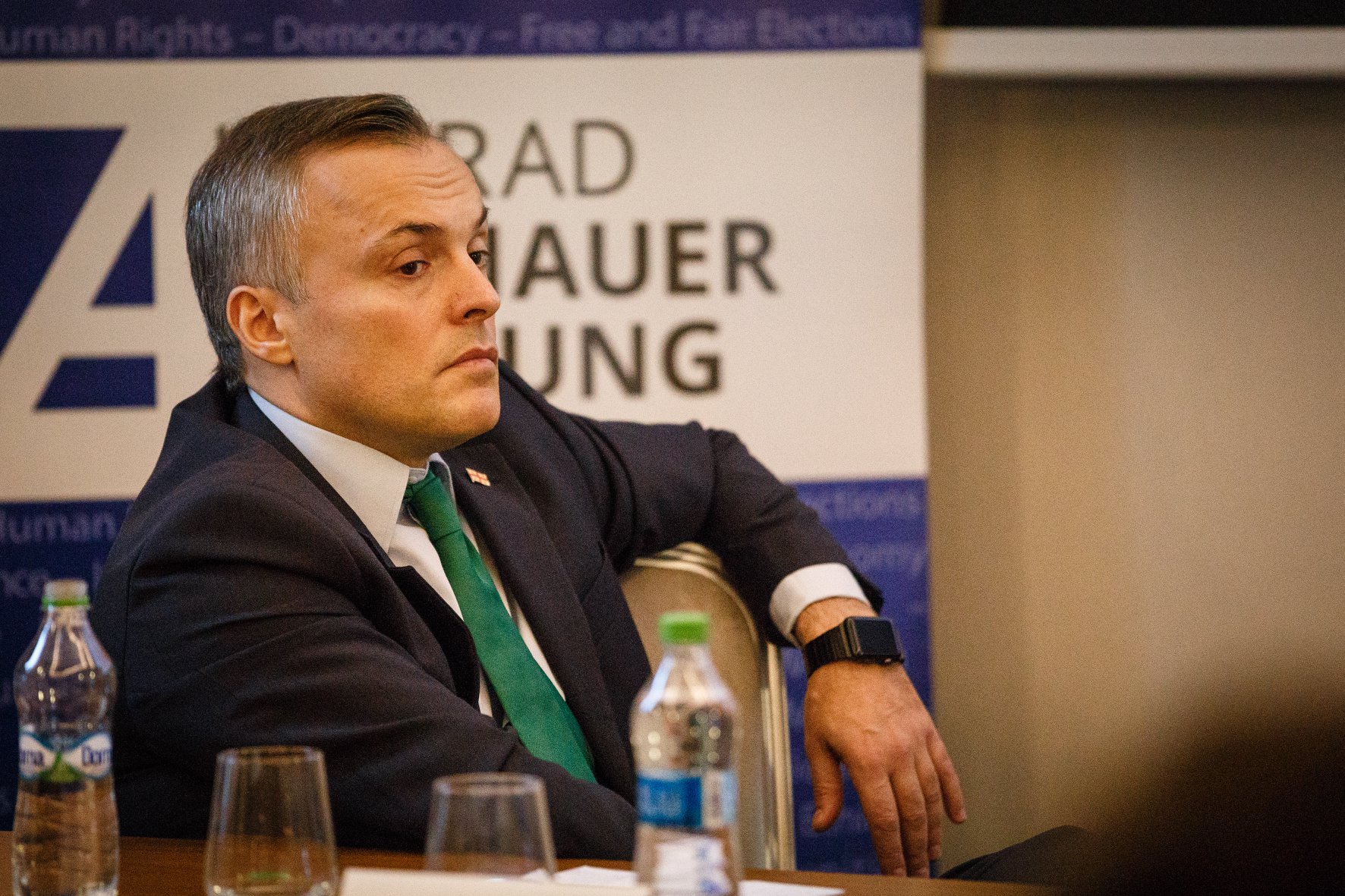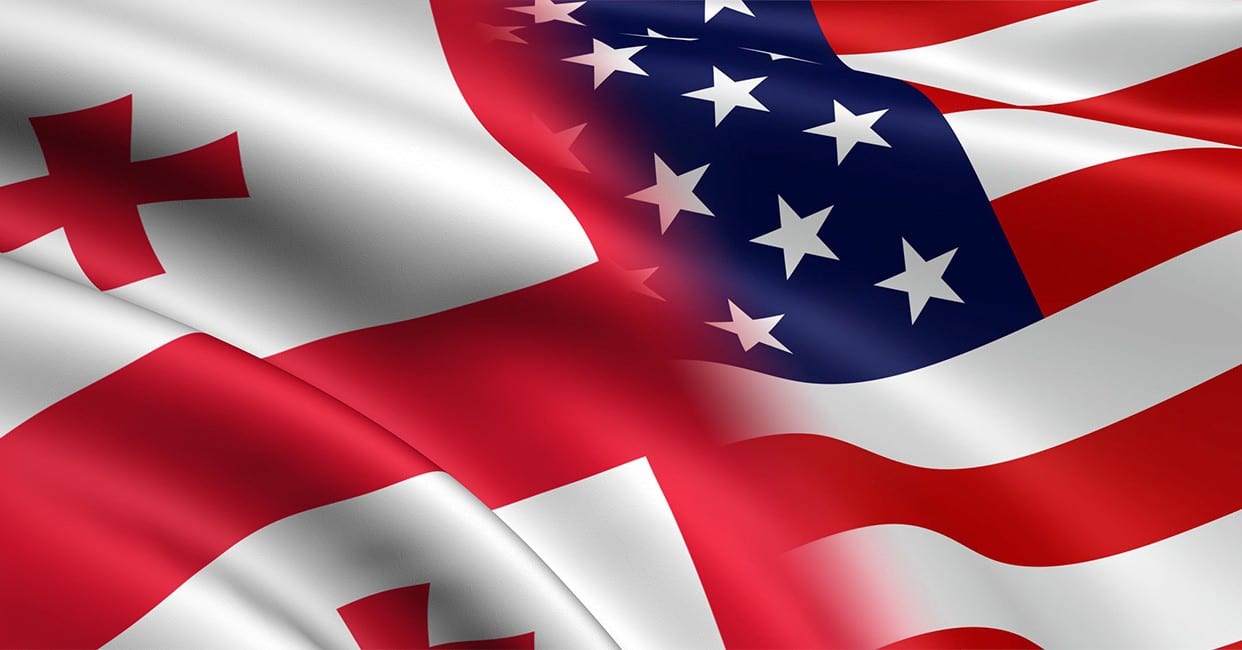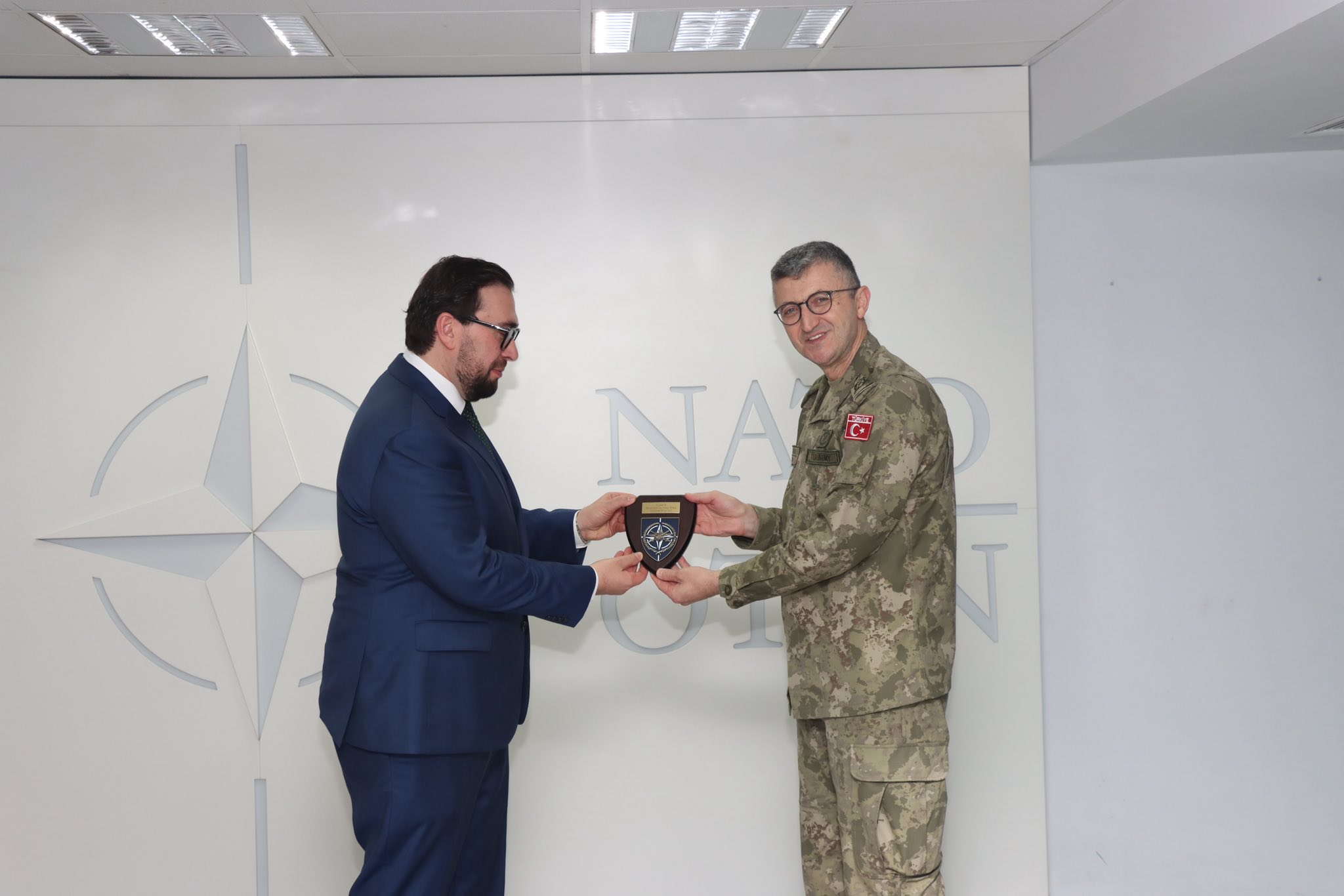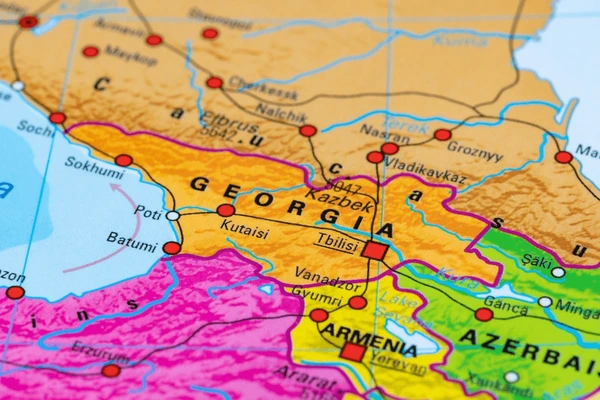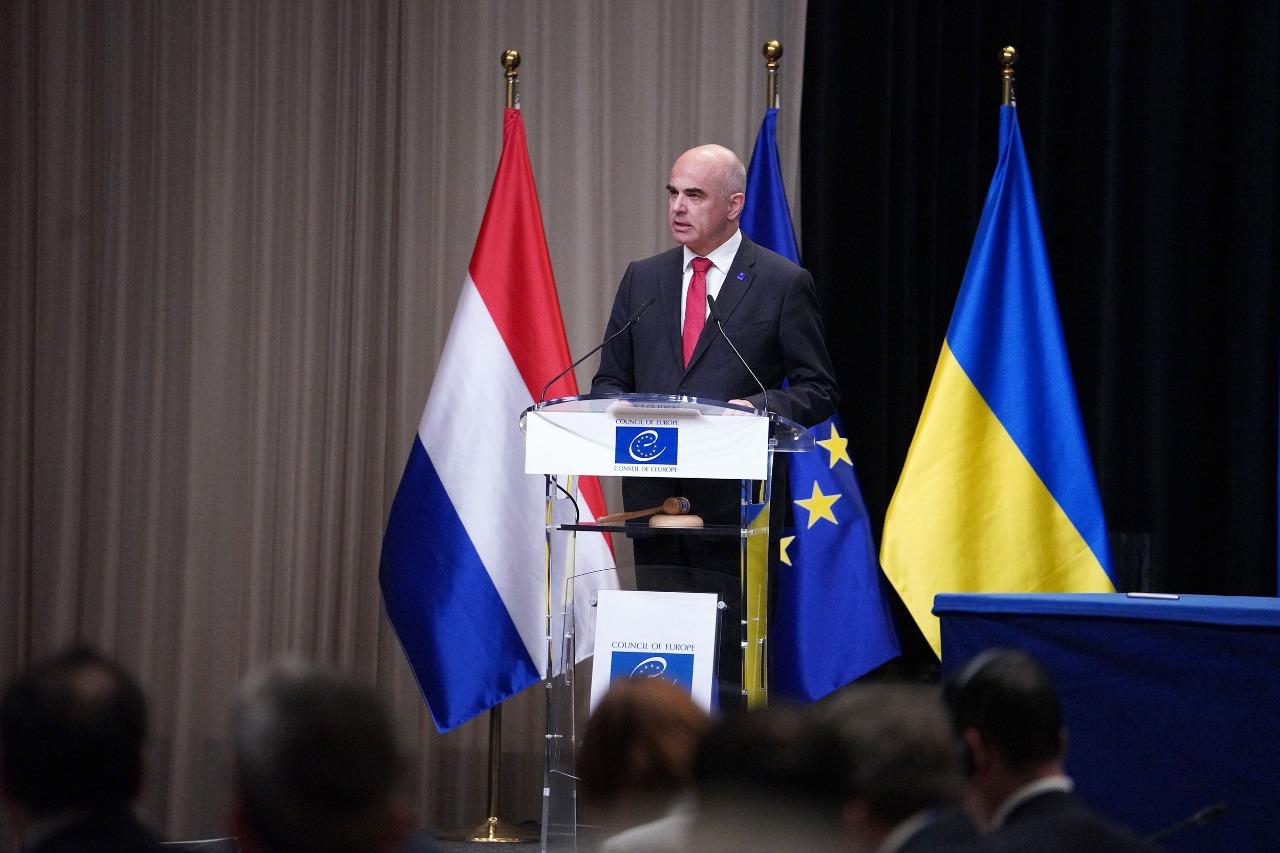The first steps and statements of the new US administration on Russia have raised expectations that America will be stricter and more uncompromising in relation to democratic principles and autocratic regimes. This may be a new opportunity for Georgia to consolidate its aspirations on the path to the Euro-Atlantic alliance, but more and more criticism is heard from friendly and strategic partner countries towards country immersed in the internal political crisis.
Georgia's current geopolitical position and relationship with the new US administration, as well as its interests in the so-called regional alliance initiatives were a topic of an exclusive interview of a former Ambassador Extraordinary and Plenipotentiary of Georgia to the United States, former Deputy Secretary of the National Security Council of Georgia, Vice President of the Atlantic Council of Georgia, Batu Kutelia with Europetime.
- According to US President Joe Biden, the US is working to hold Russia accountable for the aggression in Crimea. We would like to know if there has been a similar message from American leaders in recent years that they do not only condemn the annexation and recognize the territorial integrity of Ukraine, but the United States seeks to hold Russia accountable. The Biden administration has also made a number of important statements regarding Georgia, though not as specific. In your opinion, what do these messages of the American President mean?
First of all, these messages from the new US administration are very important. It is often said that the main test of the Biden administration will be Russia and its policy towards Russia. With regard to Russia, the test of Biden's policy lies in what position the United States will take on what Russia has done over the past 12 years. The reality given as a result of abuse of Obama’s reset policy by Kremlin is also part of that period. Including what happened in Georgia and Ukraine.
Biden's policy is entirely in response to the aggressive revisionism of Russia, which Putin openly and explicitly began in 2008 with his military aggression in Georgia. The new US administration policy is not only to contain Russia, but also to drive it away, which Joe Biden, Anthony Blinken and other members of their team have repeatedly mentioned in various contexts.
The issue of Ukraine is fundamentally important for the United States, because in addition to the fact that the annexation of Crimea violates the principles of international norms, this territory is also very important from a geostrategic point of view for the United States. The purpose of the annexation of Crimea by Russia was to make this area a zone of exclusive rights and influence of Russia.
This is a challenge to the Biden administration. He will continue the distribution of these areas of influence if he has a foreign policy based on values, where it will be important to adhere to international norms and free choice of countries.
That is why the United States needs Georgia as a strategic partner in this foreign policy equation. So far, every single step taken by the new US administration has been correct. It will be interesting to see how this translates into a concrete policy in terms of foreign policy, and when the foreign policy team is fully approved, then we will see more specific steps in this regard.
-As for the US attitude towards Georgia, what are the concrete results, actions and steps to increase the level of US support? In addition, how can Georgia benefit from the example of specific projects?
There are already two specific issues here. When we talk about supporting Georgia, we are talking about what direction Georgia will take. Will Georgia be a country worthy of US support, as Biden’s declared foreign policy priority is a democratic agenda and support for democracies? The idea of a Democracy Summit serves just that. If Georgia remains a democratic country and does not move to informal governance and authoritarianism, then, of course, it will have a different degree of support from the United States.
- In the context that you are talking about, will the recent developments in Georgia affect the quality of US support? Is the fact that the United States has imposed sanctions on several individuals in Saudi Arabia, its biggest ally in the Muslim world, a clear message that the Biden administration treats values and national interests equally, unlike the Trump administration? And does this reassure us that no one will turn a blind eye to Georgia if democracy is weakened?
The given situation is not static. In a very short period of time, it will become clear whether we will remain on the positive agenda of America or become an authoritarian state like Belarus. Therefore, theoretically, if we continue the path which is the open will of the Georgian people - to be a Western European democracy, then naturally, now is the best moment for Georgia, because supporting democracies is an openly declared task of the Biden administration.
There are ongoing debates on several issues in American foreign policy, that is, whether pragmatic interests are more important than value components and how we can find the right balance between the two. Biden's stated policy is that democratic values are paramount and that US needs partners to ensure them.
Biden said in Munich that now is a historic moment. In this new historical moment will Georgia become America's strategic democratic partner in the region? There are few such countries around. This determines the US policy towards Georgia. Will all its political resources and agenda be spent on stopping Bidzina Ivanishvili and Russian-style kleptocracy, or, conversely, on Georgia's integration into NATO? That’s exactly what choice we are facing now.
What will happen depends on how the processes will develop within the country; on the other hand, on the failure of Georgian government to actually formulate Russian-type authoritarianism and ruin its strategic partnership with the West, as can be seen in the statements and open criticism we hear from international partners today.
In your opinion, does the government team have such a human resource that can firmly maintain and develop the process of European integration? I mean people who can have any leverage to turn the data created today into positive one, both in making decisions within the team and gaining the support of international partners?
Lately, my American friends and partners have been asking me the same thing extensively. I wish I had a positive answer to that. Unfortunately, the anatomy of the formal governance of this government and the levers seized by the state almost rules out the existence of such independent political actors. We can see this on the example of previous prime ministers. As soon as either of them tries to acquire a slightly more independent and pro-Western profile, they automatically and instantly end their careers in an uncertain situation based on Bidzina Ivanishvili's pro-Russian vision.
However, there is a reverse logic here as well. I think that such actors may appear in the ‘Georgian Dream’ team. Not because they believe in ideology, but because of pure pragmatic views, if the United States and the European Union will have a proactive policy in Georgia.
If we recall, this was the case during Shevardnadze's time, when the United States already had a declared policy in Georgia and the region, in terms of security, including energy security (Baku-Ceyhan project, assistance in resolving the situation in Pankisi Gorge). After the emergence of open American interests, pro-Western sentiments in Shevardnadze's government team automatically increased. There were very few pro-Western, idealistic politicians and actors then. These openly expressed and fixed interests prompted many actors to act pragmatically according to motivation.
Therefore, if there is an active American policy, then such politicians will emerge as well. Leaving Georgia on the NATO integration agenda will be a very strong lever to stop Ivanishvili's kleptocratic system prone to informal rule and strengthen democratic interests in the political spectrum and society as well.
-The President of Azerbaijan, Ilham Aliyev, has said that if Georgia wants, it can join the common platform for the reconstruction of Nagorno-Karabakh. Earlier, the creation of a six-nation platform in the region was also discussed by the President of Turkey and the Minister of Foreign Affairs of Iran. The creation of a new transport corridor in Karabakh connects these five countries. Is it in Georgia's interest to be involved in a common platform for the reconstruction of Nagorno-Karabakh, and what is the West's position on this platform?
It’s better to be involved in any negotiations when there are favorable positions. If not, it is better not to get involved at all. If there is an authoritarian government in Georgia under the informal rule of Bidzina Ivanishvili, the rest of the world will criticize us and say that we are no longer a democratic country and we have no European future. In such conditions, entering any type of format means that we will not be able to protect the state interests. The only strength of Georgia is that we should be a beacon of democracy in the region and therefore have the support of the West and the United States. We can participate in such a tandem in any format, but when we are criticized for our democratic backdown, our position will be weak; naturally, this format is absolutely unprofitable for Georgia and will not bring us any benefits.
What I say at all international forums is that Georgia should not be identified as a South Caucasus country. We should not even be part of the distribution of some regional balance of power, but a country of the European type in the Eastern Black Sea region.
The South Caucasus is not a single geopolitical region for many reasons. The Black Sea is a more geopolitical entity. Therefore, our task should be for Georgia to identify itself as a European country in the Black Sea region.
This South Caucasus identification contributes to the Russian logic that this is the sphere of influence of Russia and powerful states, and they will shift the balance according to their interests. Being a European Black Sea country is the strategic vision we need to have. But today in Georgia's foreign policy there is no similar vision, and moreover, the country and the country's interests are led against it.
-As for the Karabakh platform, should Georgia be involved or not and why?
Due to many specific factors, we need to maintain good relations with both neighbors - historical, economic, political. It is important that Georgia positions active neutrality on the Karabakh issue, not passive. Active neutrality means that we must be the mainstay of Western interests in the region. We often say that Georgia should be more than just Georgia with its democratic European, Euro-Atlantic integration. It must shift the balance in its favor with respect to neighboring states.
We can not position ourselves with money, economy or armed forces alone to achieve national goals if it is not part of the unified strategic vision I talked about above. This active neutrality means that our moral superiority in the region should increase so much by democracy and good relations with the West, that in the same six-format, something is not distributed in the region at the expense of our interests.
_Does the creation of the Six Platform mean a direct strengthening of Russia's influence in our region?
Not six, but five already. We are lucky our Foreign Ministry stated that Georgia would not get involved, although in the context of an institutionally broken foreign and security policy this statement does not guarantee that the opposite will not happen.
- However, in December 2020, the President Salome Zurabishvili had a different position on this format and spoke about the initiative in a positive context?
What Salome Zurabishvili said in December was disadvantageous. I think she said this not on her own initiative. It was simply an attempt by the government to test the reaction - the international and domestic response was very acute. By the way, this was also a case of enjoying the moment. Before the new US administration could formulate a new foreign policy, there was an attempt to ‘push’ the idea. This is not a new idea - in 2008, (Ahmet Davutoglu, Turkish Foreign Minister) the war was just over, when this idea was first voiced by Turkey. Russia has always tried to micro-regionalize its foreign policy. This type of regionalization is disadvantageous for Georgia, the only thing that is most important for us at this stage is the European democratic identification and not the status of an authoritarian South Caucasus state or any other hybrid regime.
When we say that we want to identify ourselves as a geopolitically European type of country, this is not a declaration alone. This should be accompanied by specific actions and relevant projects. For example, if we look at specific projects, this is one of the most important moments - in addition to energy security and the southern corridor, there is also the issue of the logistics corridor.
In order for this logistics corridor to be effective, it needs a ‘grand strategy’, which must include Anaklia. Anaklia not only as a port project but as a geopolitical corridor. ‘Strategic Connectivity’ should be the main idea by which we acquire a geopolitical function.


